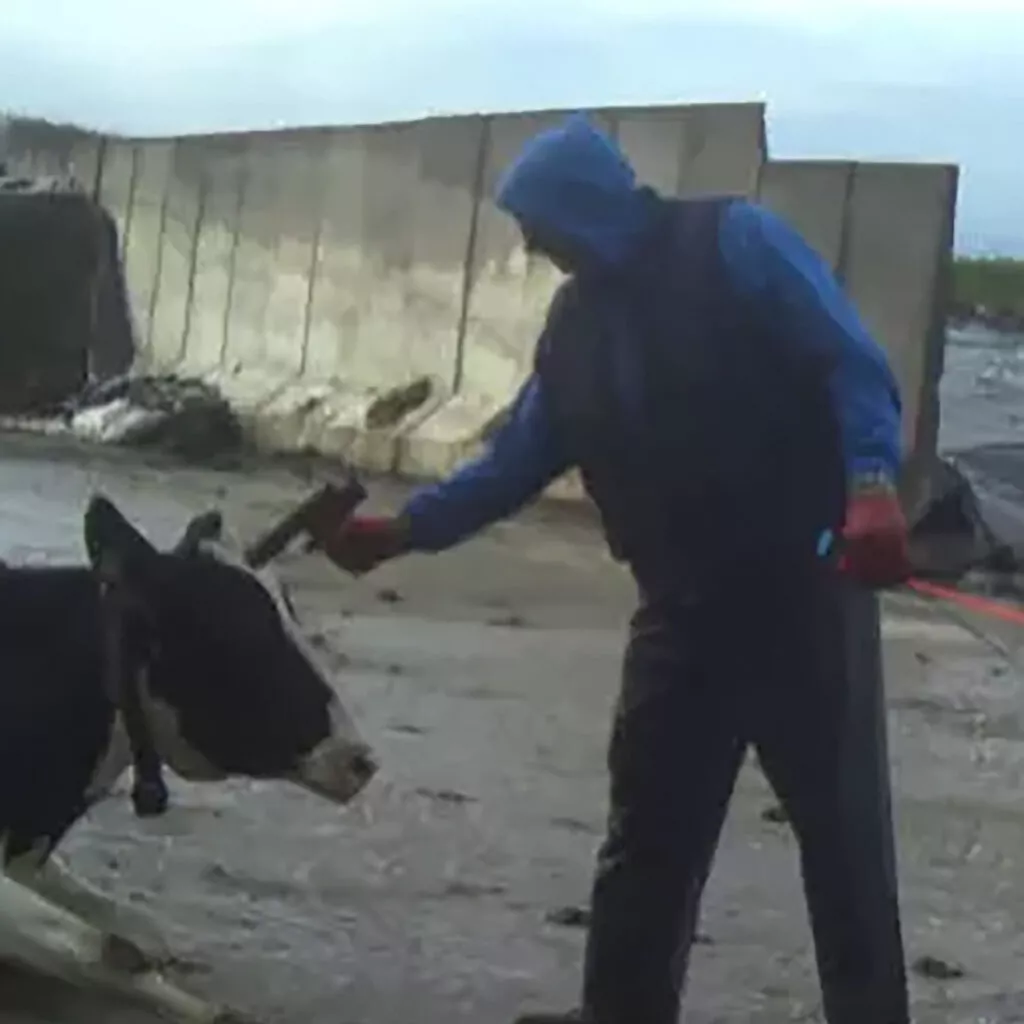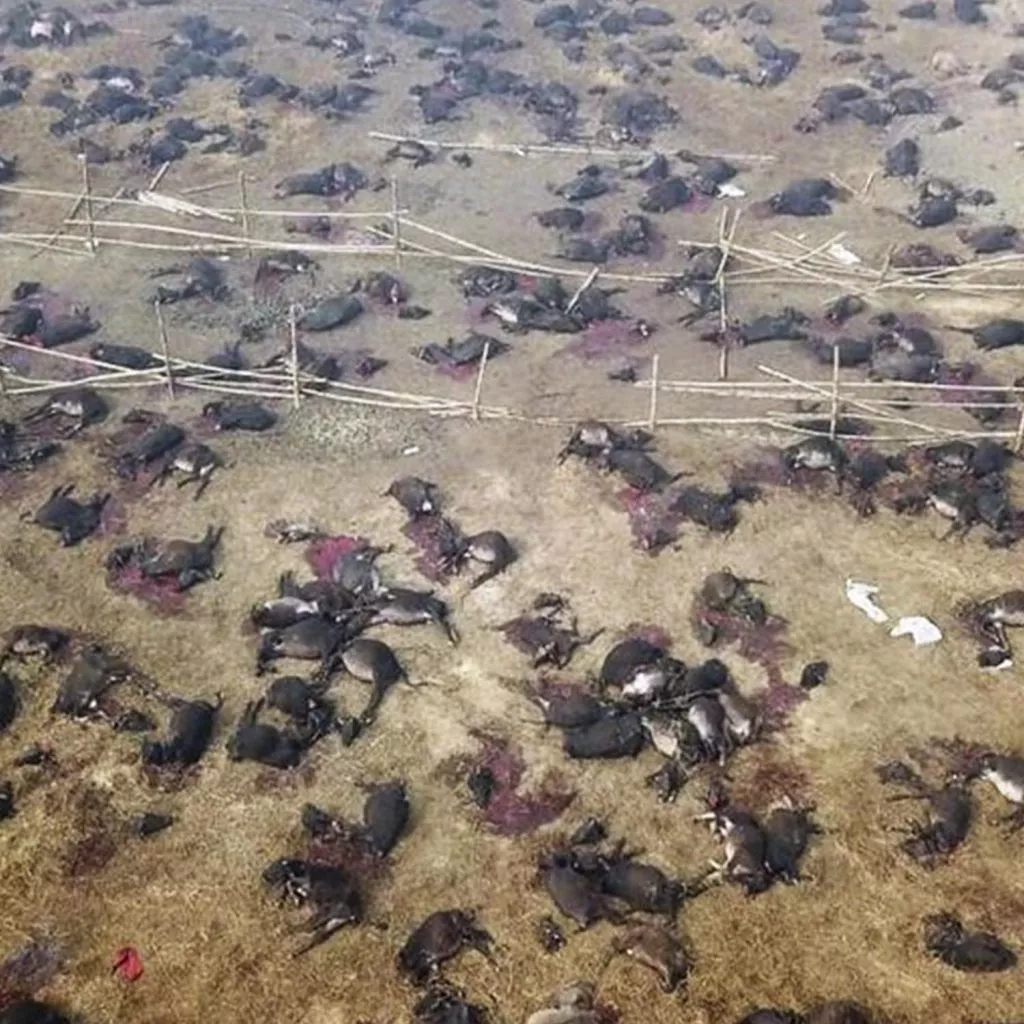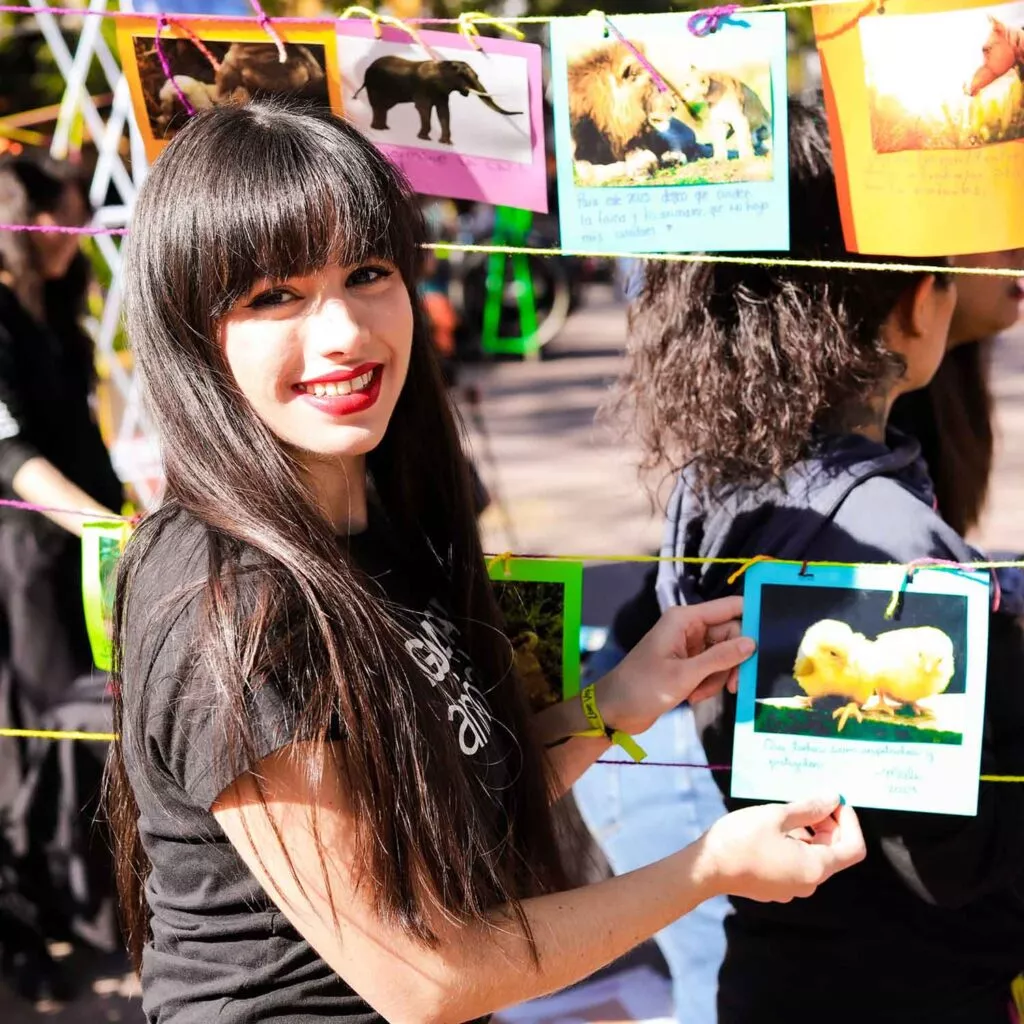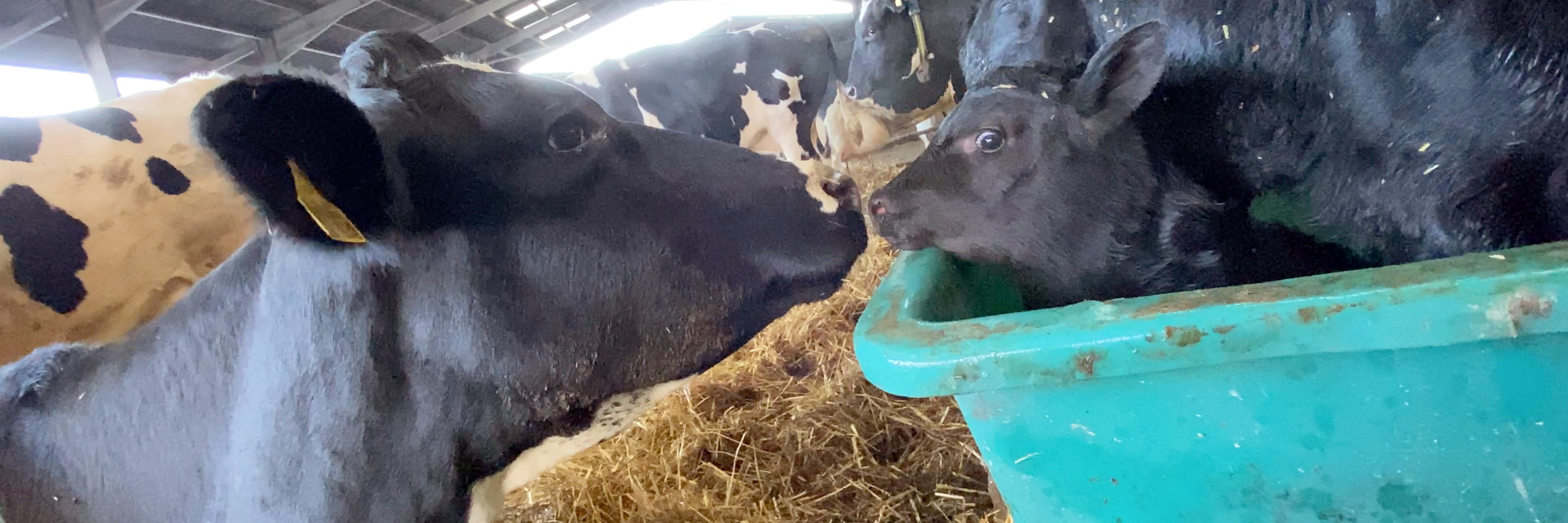
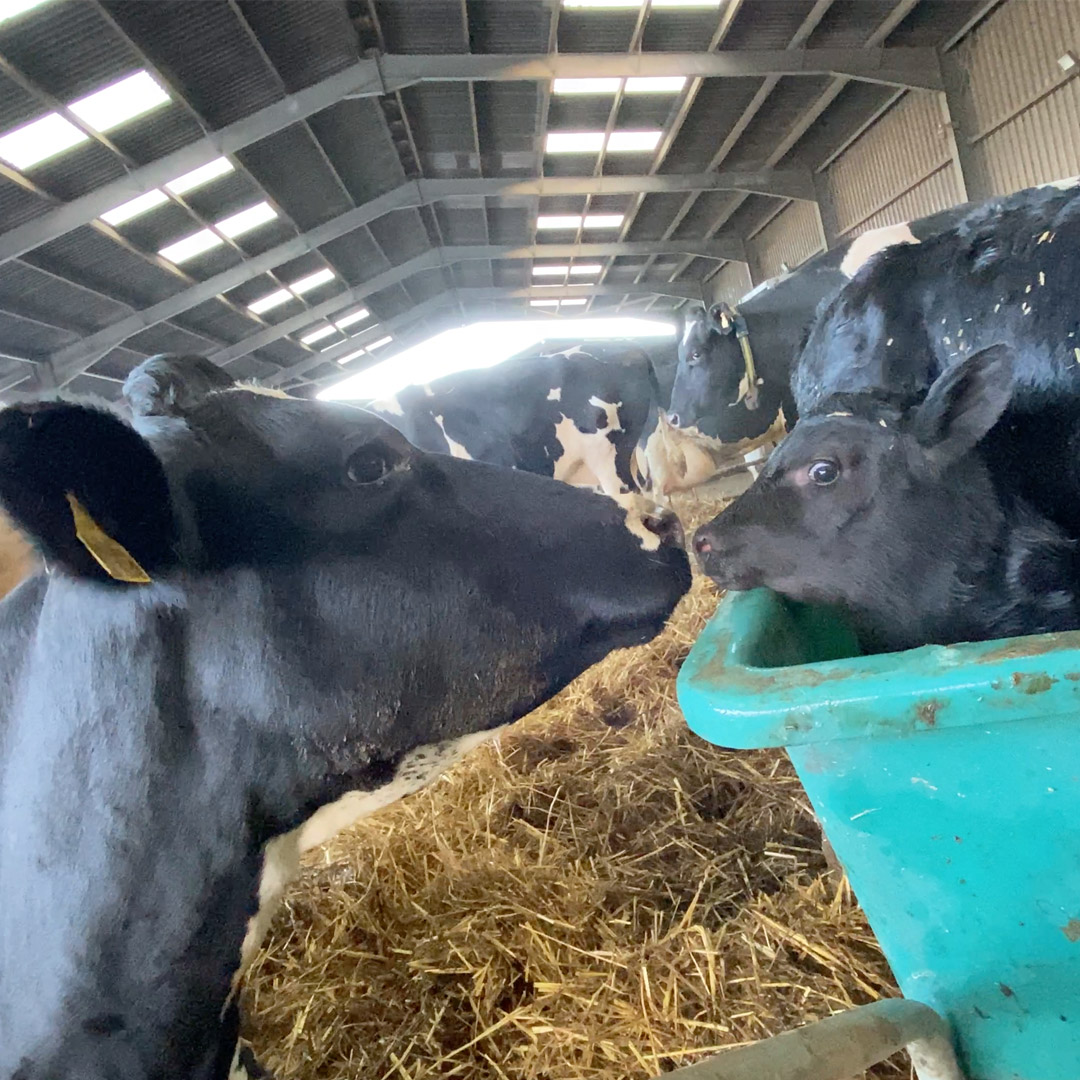
Our Global Mission to Expose Dairy’s Hidden Cruelty
Far from the public eye, the dairy industry hides its abuses to cows. Through groundbreaking investigations, Animal Equality is ripping open the industry’s doors and exposing the secrets inside.
From the United States to India, investigators have found baby cows torn from their mothers immediately after birth. These mother cows and their babies cry out for each other. This is a common and cruel practice to preserve the mother’s milk.
Because cows can’t produce milk unless they give birth, they are forcibly impregnated time and again. When a cow’s milk production slows and the exhaustion takes its toll, she’s sent to the slaughterhouse. Her female calf will meet the same fate.
Male calves are confined alone for months in tiny huts. Many are sold to slaughterhouses that produce veal, where they are kept in tiny, dark crates until they are killed.
Of course, these standard practices are a far cry from the ‘happy cows’ seen on grocery store packaging. That’s why Animal Equality’s investigators are committed to sharing what goes into each glass of milk and slice of cheese.
United States
When Animal Equality investigated Tuls Dairy, a Babybel supplier, investigators found cruelty and neglect at its Summit Calf Ranch.
Babies still wet from birth were tossed outdoors into plastic huts, where many froze to death in subzero temperatures. Those who survived were denied veterinary care as their hooves painfully separated from their legs.
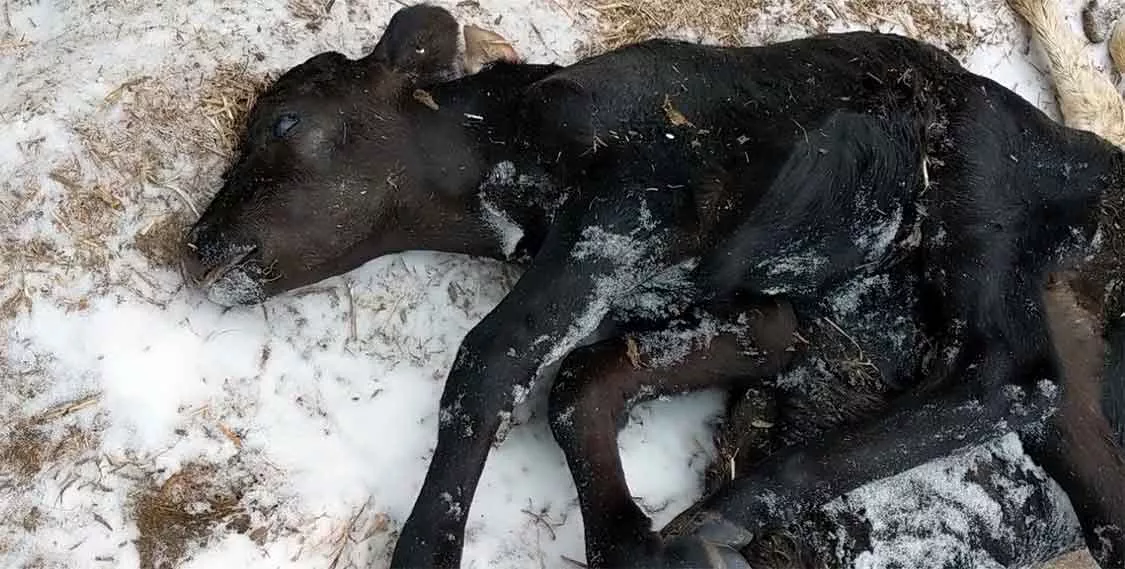
The calves’ water often froze over, while others suffered from a diarrheal disease called scours. Those who died of dehydration were left in dead piles with other baby cows.
Investigators also found routine mutilations without anesthesia. These include a painful form of castration where workers wrap a tight band around the calf’s testicles, cutting off the blood supply and causing tissue death.
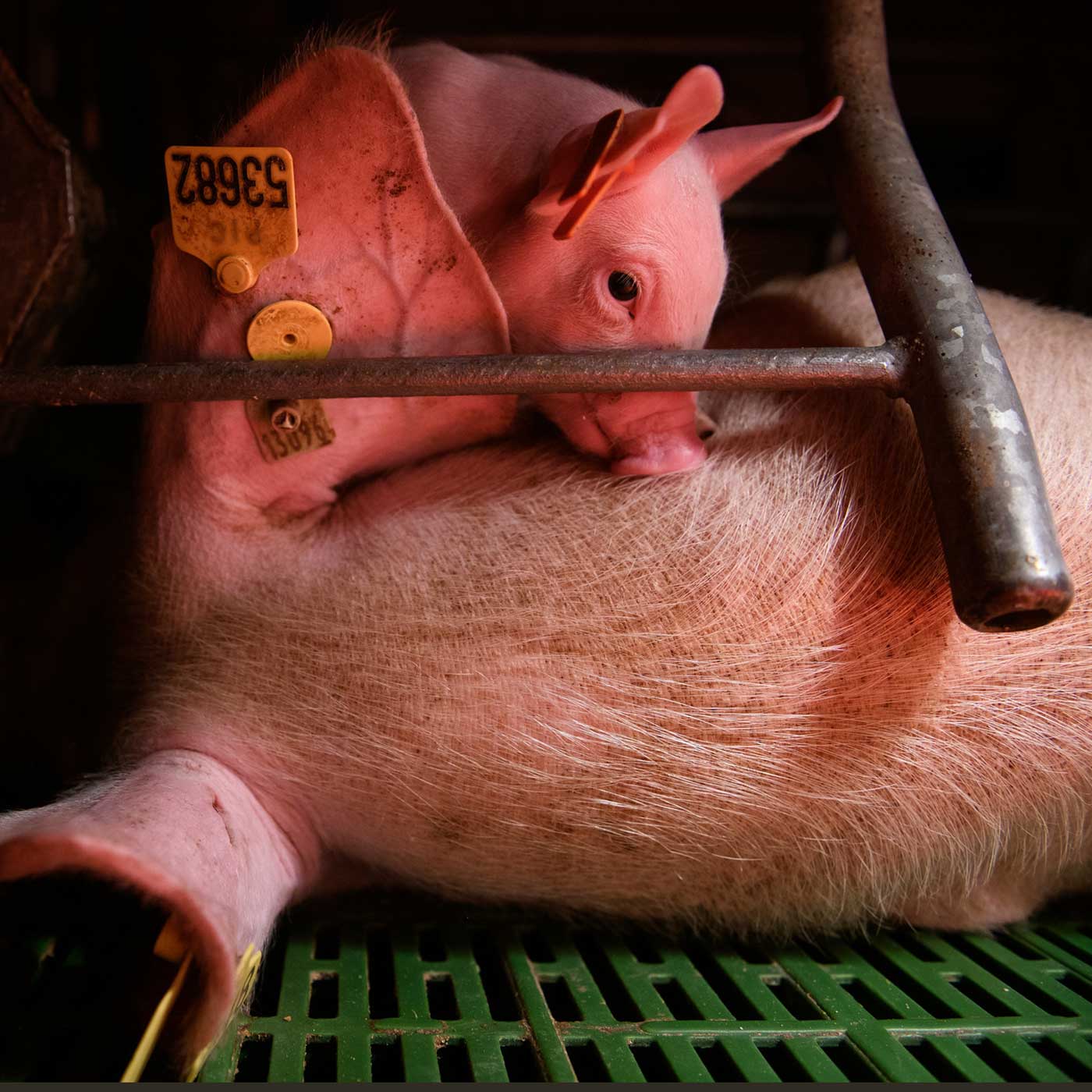
WILL YOU STEP UP FOR HER?
Her mother’s life was spent in a cage. She will suffer the same fate. But you can change this for millions of animals, currently trapped in factory farms.
Your support makes our investigations, campaigns, and legal work possible .
Only $25/month impacts 1,300 animals in a year.
India
Animal Equality’s investigators have found serious welfare violations on farms across India. Animals spent their entire lives tied with ropes so short they could barely lie down, and one cow was bludgeoned with a hammer.
Male calves were separated from their mothers and starved to death. Workers stuffed their dead bodies with hay and placed them next to their mothers, hoping it would stimulate milk production.
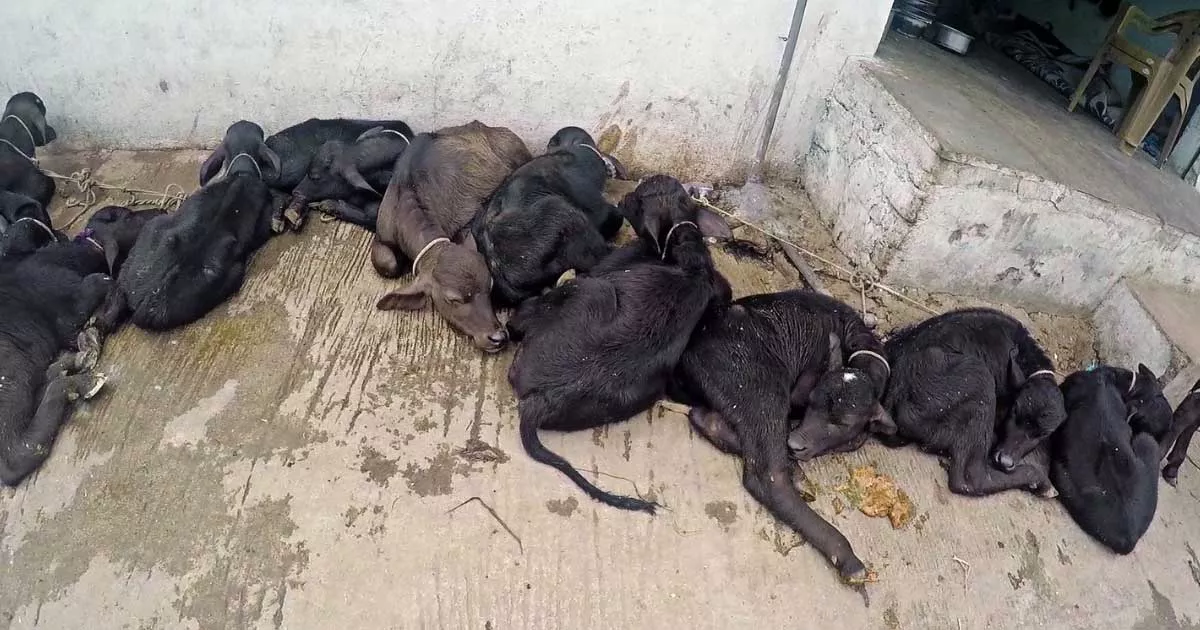
Investigators documented routine use of drugs like oxytocin, even though it has been banned by the Indian government due to its harmful effects on animals and humans. These are all considered standard practices in India, the world’s largest producer of dairy products.
United Kingdom
Animal Equality released video footage from Madox Farm, a milk supplier for U.K. household names like British Airways and Amazon Fresh. To coax collapsed cows into moving, workers beat and kicked them in the face and stomach. Investigators filmed as workers twisted their tails and hit them with sharp, metal shovels.
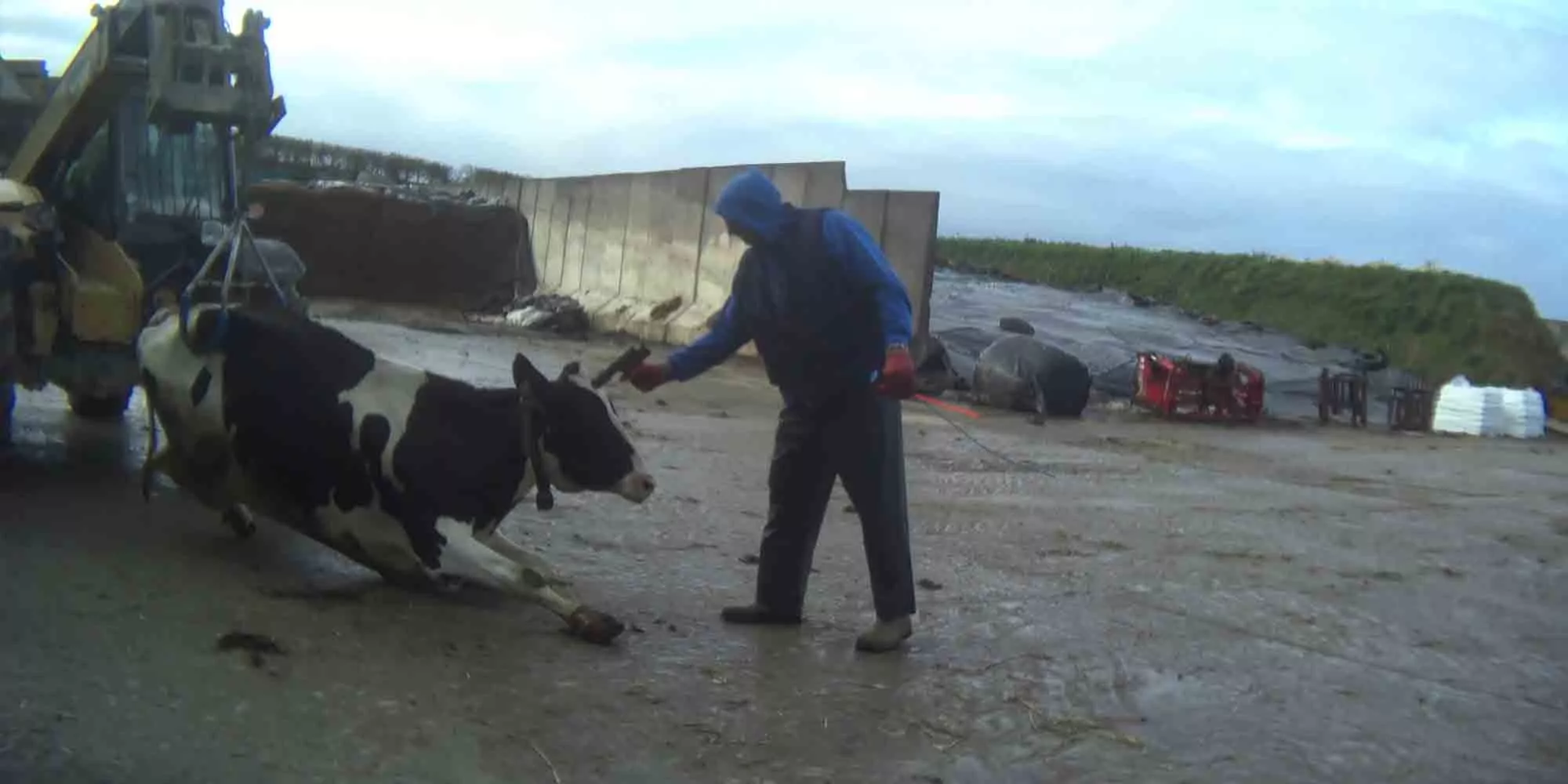
One sick cow died overnight after suffering for hours with a dead, unborn calf inside her. A veterinarian had advised immediate euthanasia, but this recommendation was ignored.
Animal Equality’s footage was viewed by millions of people when it aired on BBC’s Panorama. The legal firm Advocates for Animals submitted an official letter of complaint to authorities on our behalf, demanding that the farm be prosecuted.
Animal Equality’s investigators have found abuse and neglect on each U.K. dairy farm visited.
Italy
Known for its ‘high-quality’ mozzarella cheese, Italy’s dairy industry operates under a veil of secretary. That is, until Animal Equality’s investigators visited.
Images collected by Animal Equality and video acquired by a fellow animal protection organization show buffaloes being kept in filthy, unhygienic conditions in Northern Italy. They were forced to live in mud and feces up to their knees, while poorly-maintained equipment and animal pens were falling apart.
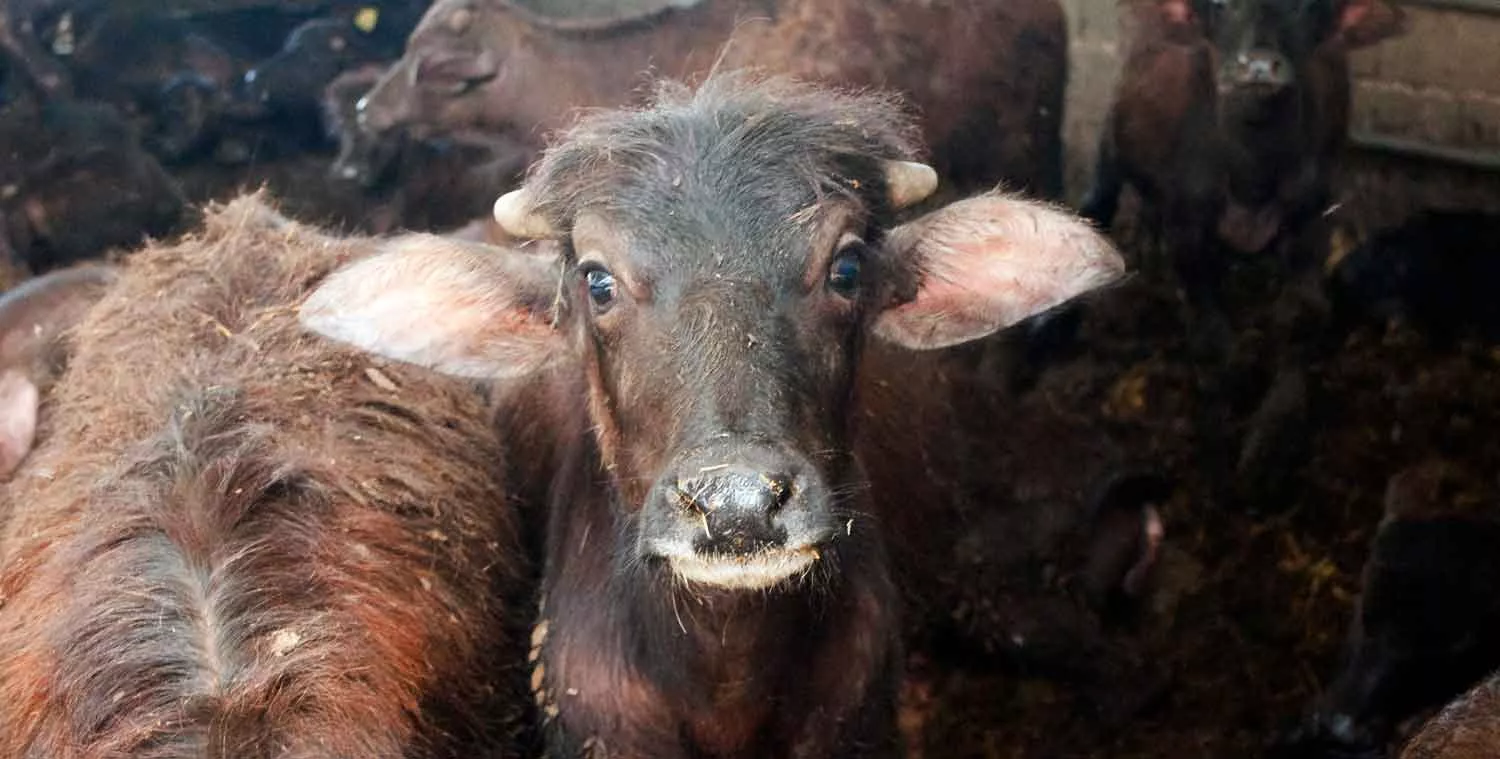
Buffalo calves were separated from their mothers and abandoned to die of thirst and hunger. Dead animals were left to rot among the live buffaloes, with flies swarming their bodies. Untrained workers administered medical treatments.
Almost half a million buffaloes are bred each year in Italy for mozzarella, living in conditions just like these.
Mexico
During an investigation on Mexican dairy farms, investigators found animals enduring painful mutilations deemed so cruel that other countries had outlawed them. This included tail amputations, branding with hot irons, and dehorning. Mother cows were repeatedly inseminated by inexperienced workers, and their babies were taken away to be locked in filthy, cold cages.
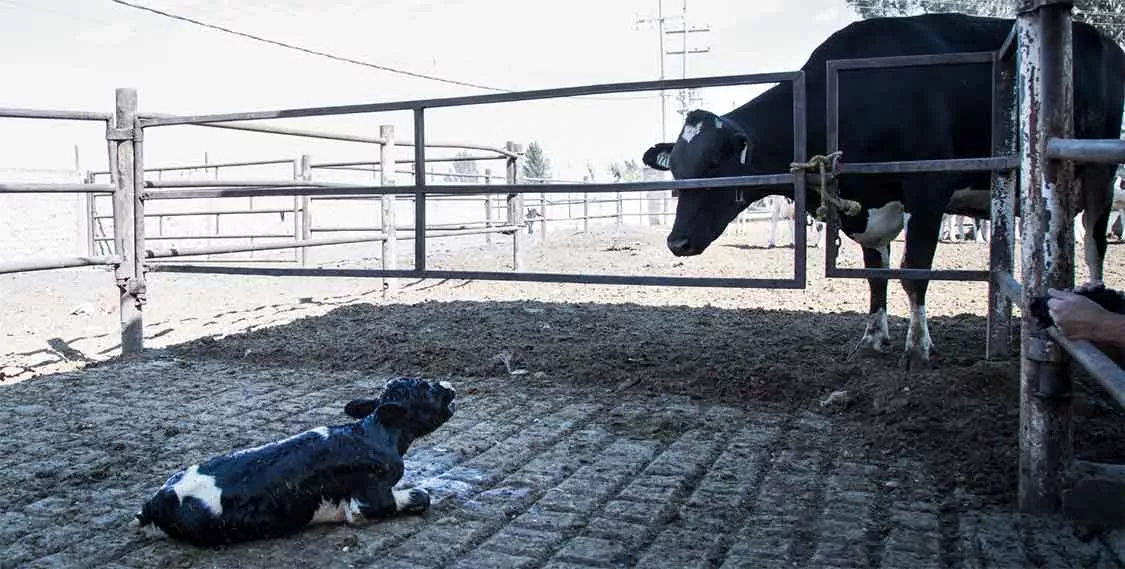
Cows were forced to swallow magnets to remove contaminants from the food in their stomachs. Many had injured and infected udders from mechanical milking machines and were left without treatment.
What You Can Do
The easiest way to defend animals from cruelty is by replacing dairy, meat, and eggs with flavorful and satisfying alternatives. From oat milk to cashew cheese and almond yogurt, you’ll never run out of creamy dairy substitutes.
At Love Veg, we’ve provided all the information you need to begin your plant-based transition, from recipes and beginner tips to recommendations for eating out.
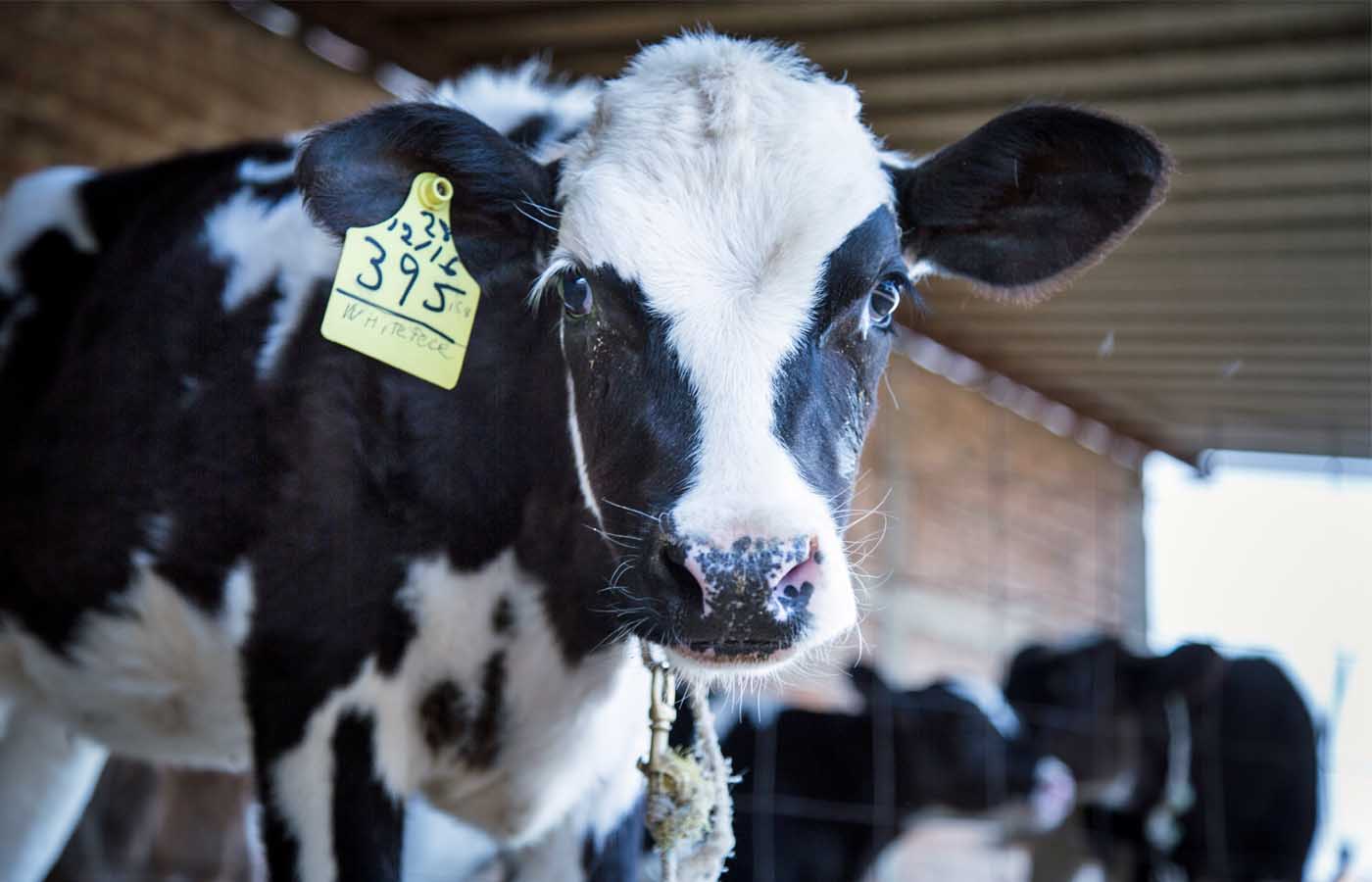
DEFEND COWS
A cow’s maternal instincts foster a gentle bond with her vulnerable calf.
Preserve this tender relationship by trying plant‑based alternatives to dairy products.
Recommended
